The air is humid, accentuated by a cloud of flour looming over Zack Hall’s apartment kitchen in West Hollywood. Food photographer Alicia Cho and I stand next to a rack of perfectly-imperfect loaves of sourdough bread that are filling the air with the intoxicating aroma of heaven, itself. Cutting into one, the delicate yet crunchy sound of the blade making its way through the golden encrustation sends chills up my spine in anticipation for the taste of the promised land. In the oven, a dozen loaves of traditional-style danish ryes are being baked while Zack kneads fresh dough in preparation for his second shift in the afternoon. Paper bags in the corner have been stamped with CLARK STREET BREAD in a simple, classic serif font resting inside a rectangle. Zack Hall, after all, is the founder and bread baker of Clark Street Bread, a one-man operation baking old world, country breads.
Who knew some of LA’s best bread would be coming out of an apartment kitchen?
In a previous life, Zack was a musician and played in bands as a guitarist for nearly 20 years straight, starting at the age of 8. Remnants of his love for music is apparent in his living room with a record player resting above dozens of vinyl records. Juxtaposed alongside his collection of vinyl are clues of what may represent his life after music: Kitchen Confidential, The Man Who Ate Everything, Fast Food Nation, and Daniel Boulud’s, Letters to a Young Chef.
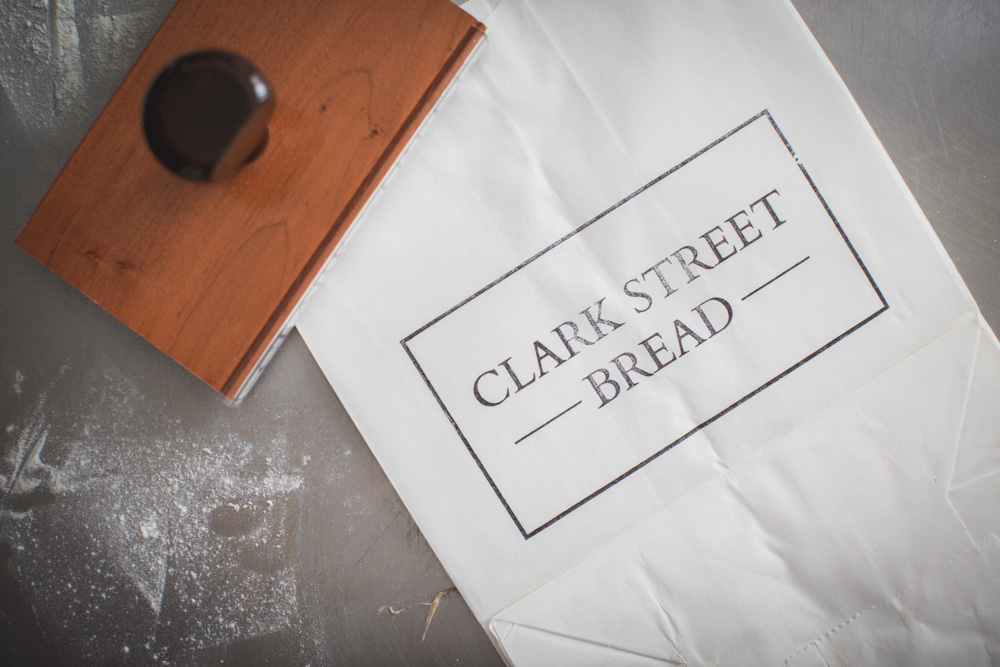
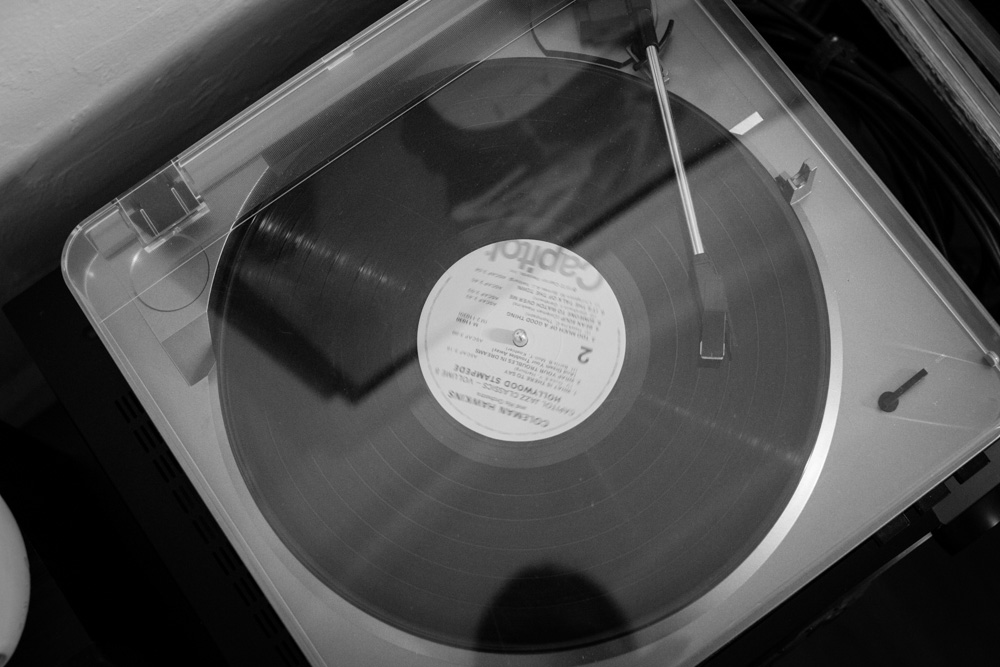
Today, he wears a flour-stained apron over his striped shirt and a black cap covering a portion of his overflowing, wavy hair as he bakes day and night. Although Angelenos won’t find Zack’s bread at a traditional brick-and-mortar bakery or even at a farmers market (at least not yet), his bread can be ordered and delivered via Good Eggs, bought at the premier meat shop Lindy & Grundy, or enjoyed by lucky guests at Trois Mec, Chef Ludo Lefebvre’s esteemed restaurant on Melrose and Highland.
While waiting for the final stretch of the danish ryes in his apartment’s oven, we make our way to Zack’s living room with a plate of freshly baked miche to hear his story.
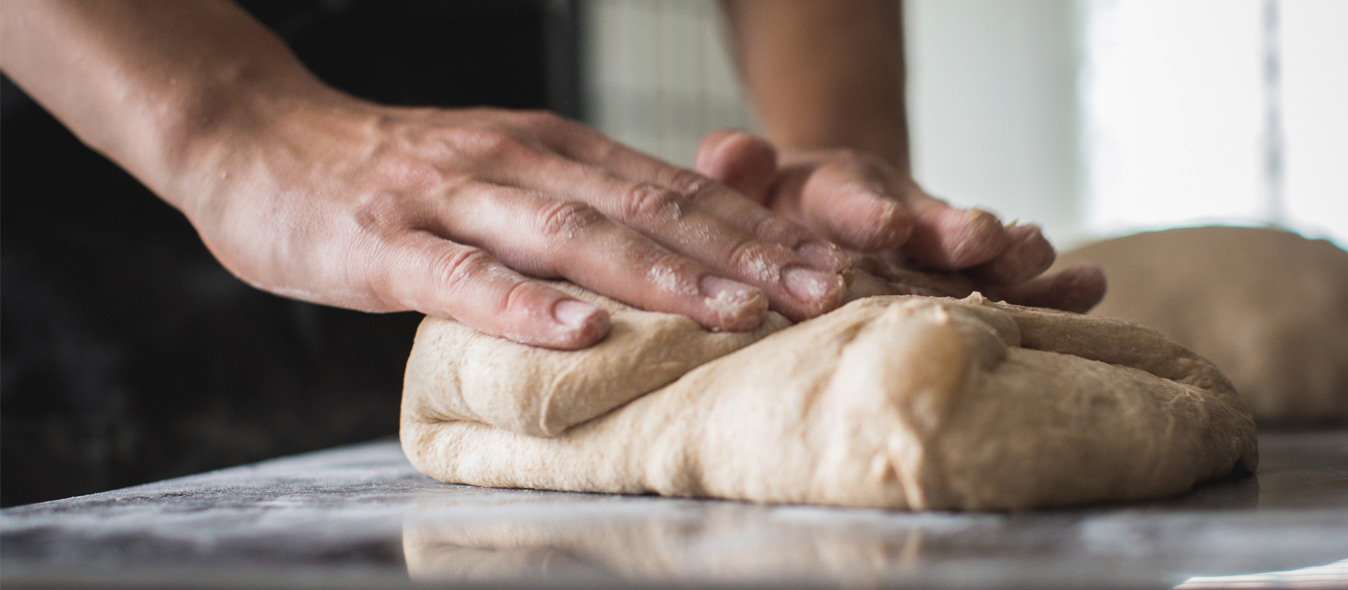
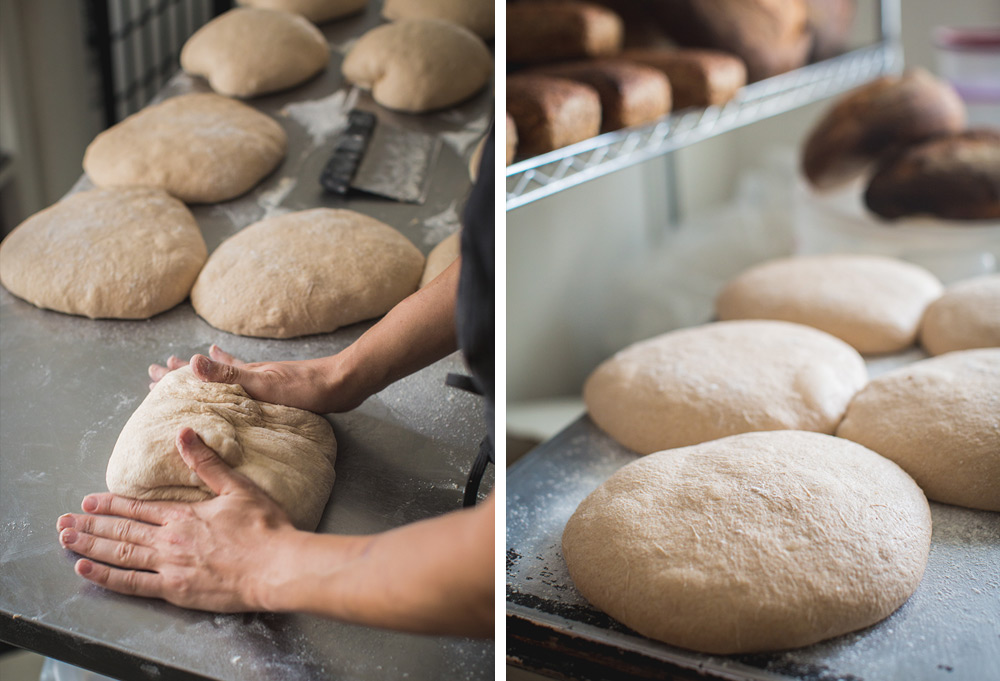
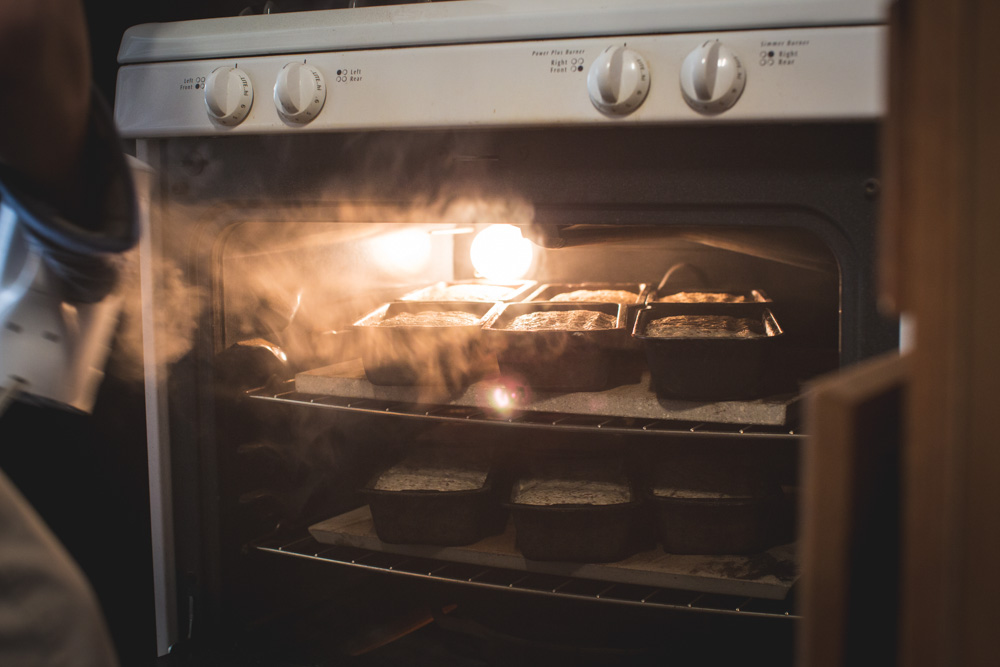
Where did the calling for bread come about?
Music wasn’t paying the bills, and I was in this band for so long that it didn’t work out and I lost the fire for it. I had an equal love of food the whole time—I had just never worked in food. After leaving the band, I tried doing real estate for like a year because if you can make money, it’s easy to make money. I just couldn’t deal with working with people in that sort of capacity. It wasn’t for me. I like to make music, I like to make food, I like to make something that you can see and you work with your hands. It’s like a craft.
Started working in restaurants and basically worked all different positions. From busboy to line cook to baker. Once I found bread, I just fell in love with it. In one of the restaurants I was working at [Eveleigh], they did a couple different kinds of loaves like brioche burger buns, English muffins, or stuff like that. So before shift, I would go and learn on my free time. Then I got Jim Lahey’s My Bread and it was such an easy way of making bread: you just mix everything together and leave it, then the next day you shape it into a loaf and bake it. It’s got the qualities of a good, artisan handmade loaf, like the crusty crust, the inside is nice and open, airy, and moist. I was really captivated by the transformative properties of bread, how it starts off as sludge or paste and then it becomes this [loaf of bread]. I was working with my hands, and before, I would think of writing the best song, now I am trying to make the best loaf. You know what it is, but you know what you like and don’t like, so those are the parameters.
You could have gone and worked for a great restaurant or bakery. Why the entrepreneurial route?
All of the men in my life when I was growing up, they were all self-employed, worked at their own businesses, and were self-made. That is what I gravitate towards.
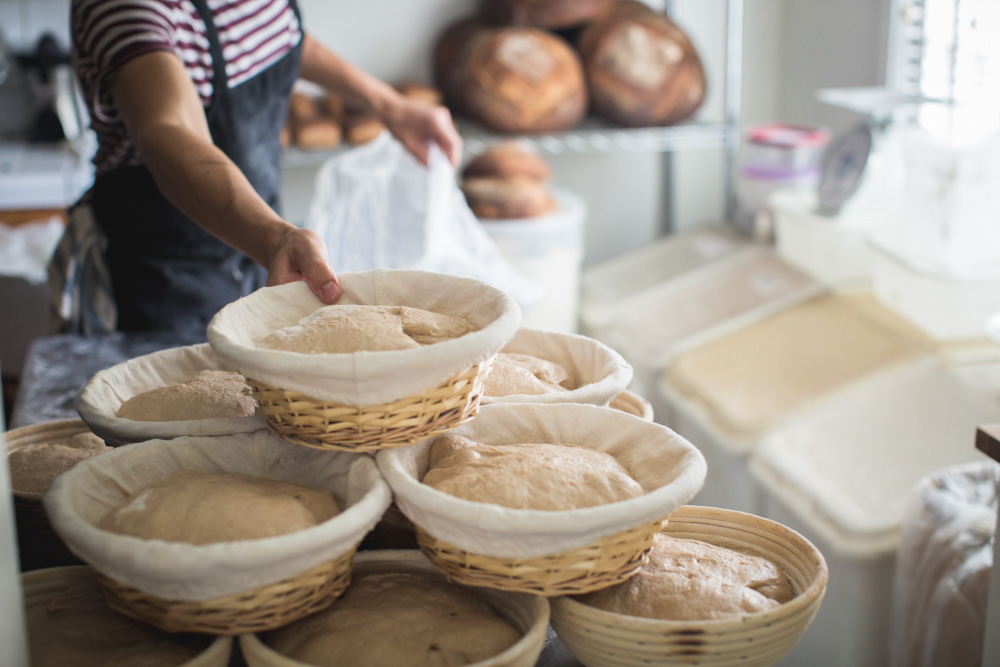
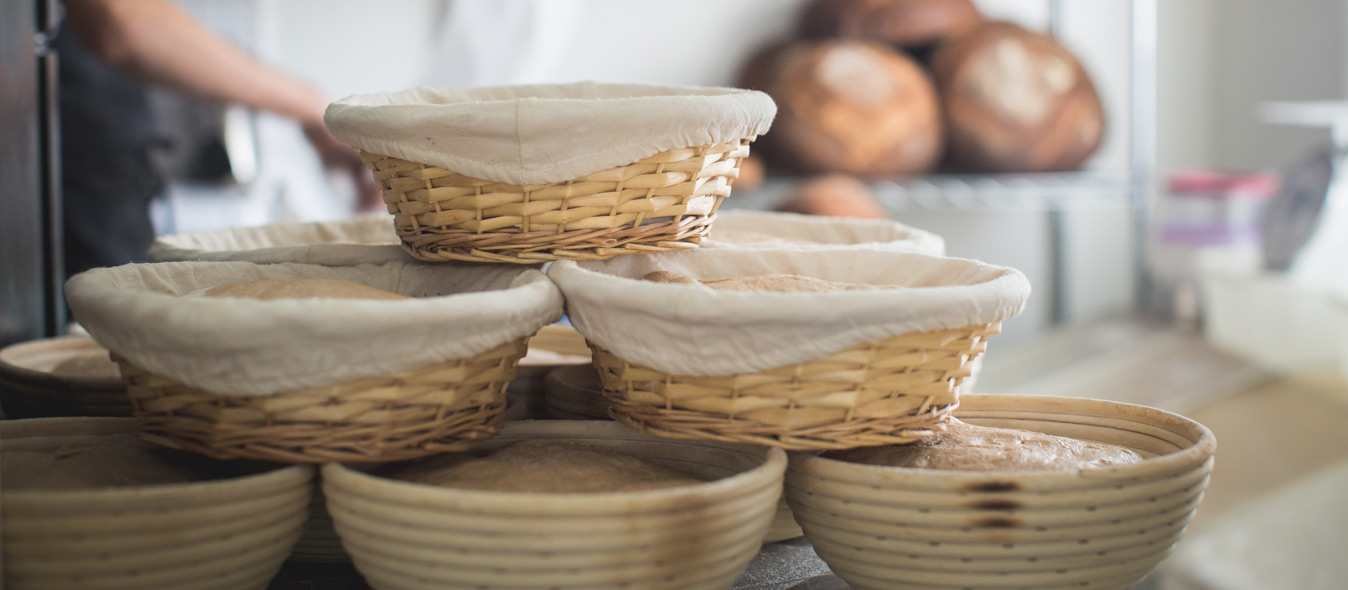
What makes an exceptional loaf of bread?
My formula or guideline is: take good quality flour (it can be organic or not), use enough water, and using a sourdough culture really has a lot of good benefits—it adds more depth of flavor, the bread keeps for longer, and it has different texture. And making sure it is fermented slowly and not quickly. I don’t add anything to the bread, just flour, water, and salt (unless I’m using seeds and nuts) but I’m not adding fats, sugars, or stuff like that. The way I get flavor is through natural fermentation, it develops these acids and a natural sweetness. So the fermentation has to be slow, it can’t be rushed. In an industrial bakery, they add a bunch of yeast and they make more product more quickly and make more money. You can’t rush sourdough, it needs a certain amount of time to develop flavor and strength. So those are the things that make good bread.
If you are talking in terms of looking at a loaf of bread or tasting what’s good: a dark bake, so the crust is crunchy and you have a good caramelization—like you would on a steak—that translates to flavor and texture. For the inside, from using the sourdough and enough water, it’s not going to be dry, it’s not going to be cottony, it’s going to have some body, it’s going to be a little moist, and you can see air pockets which are from the fermentation process and enough water.
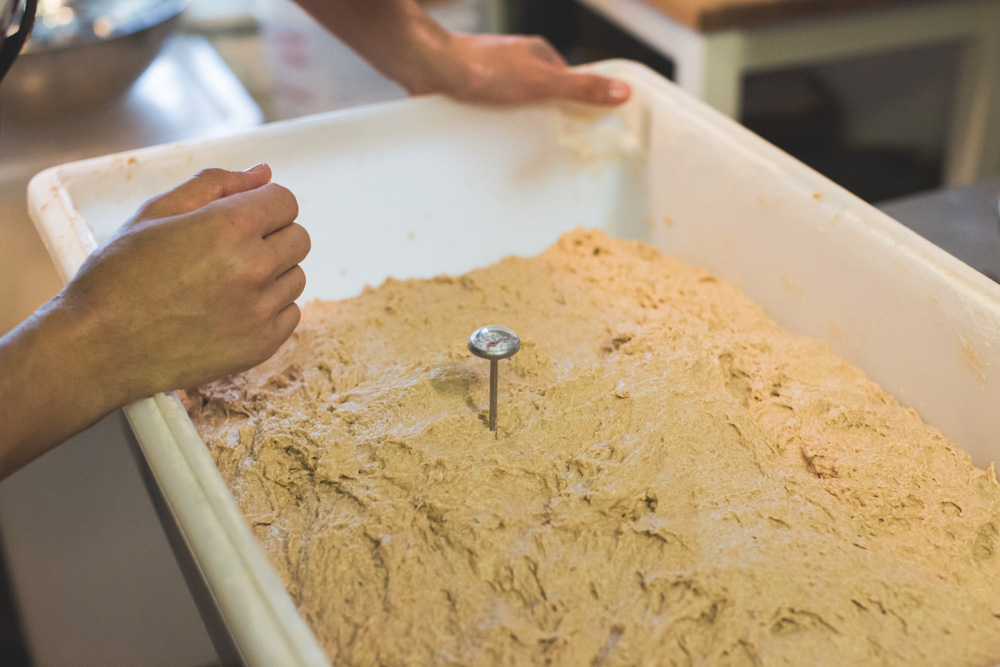
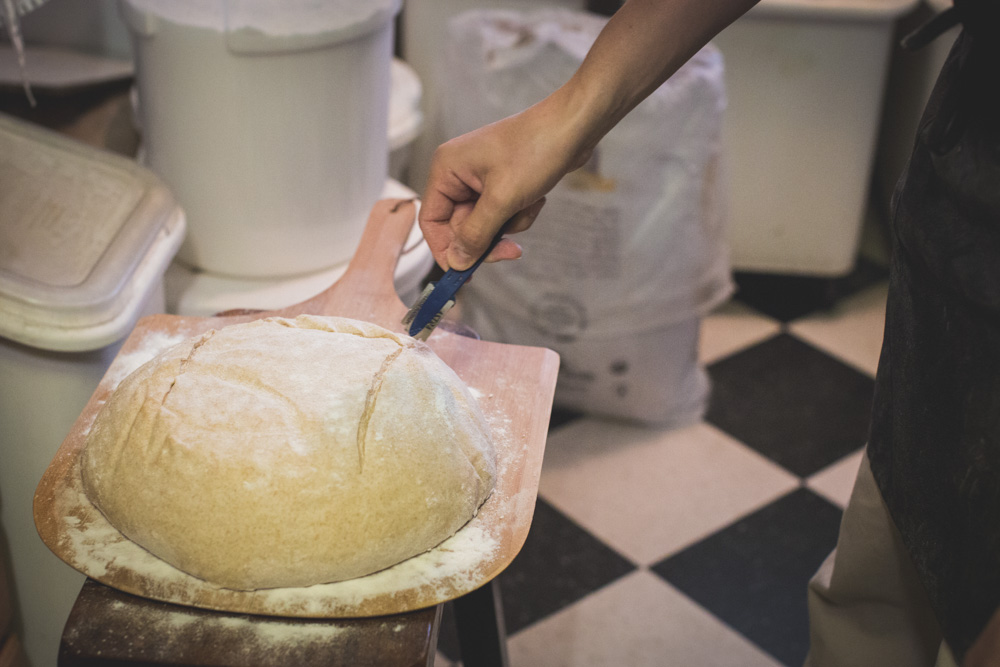
What does a typical day look like for you?
Get up a 5:30am. Usually in a bakery, there are two shifts: in the morning, the first thing you do is start baking so the customer can get the product soon. Once all of the bake is done, you start mixing bread that will be baked the following morning. Here, couple of things, I’m using a fridge and so it’s not very stable, if I use that, the bread can sometimes overproof. So I’m basically mixing and baking twice a day. I’m doing two shifts in the morning and two shifts in the evening. From 5:30am until 1, I will load up the oven and start mixing. Once that is done, the loaves are fermented, divided, shaped, and then put back in the fridge. Then I will take a break for a few hours, get coffee and a pastry somewhere. Then get back to it in the afternoon around like 4.
Do you deliver bread yourself?
It’s split. If it’s in West Hollywood, I will deliver. If it’s not, I won’t. I have accounts in the valley and Santa Monica, so they pick up. I can’t make enough loaves to warrant me selling at the farmers market. I have to get a space and an oven set up, then I can do farmers market.
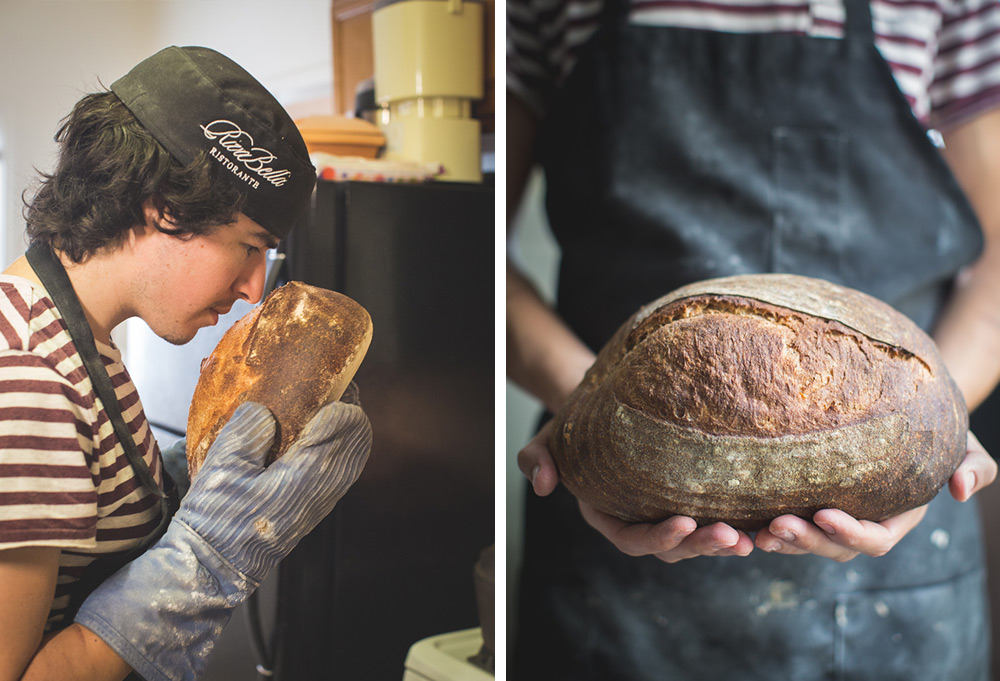
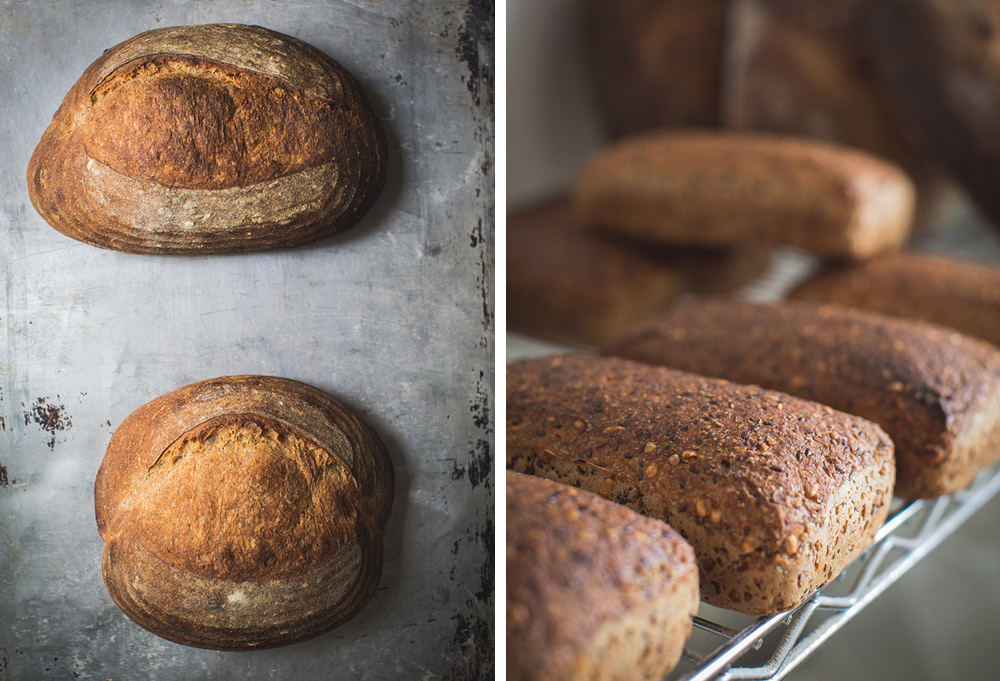
How do you go about acquiring accounts?
One found me on Instagram, one found me on Instagram, one found me on Instagram, and another one…. I don’t know. Instagram is the PR. Trois Mec, Luna Vine wine bar, Farmshop, Good Eggs, Lindy & Grundy over on Fairfax, and I think that’s it for now. The only account I went after was the first one: Lindy & Grundy. I started baking a couple loaves a day, and I was like “I’m going to start selling these things—these are good!” I brought them over there [Lindy & Grundy] and I was nervous. They were like “Yeah sure, we’ll have you once a week,” and I’ve been there over a year. So they were the first one.
More important, where can people find your bread?
You can buy the bread directly through GoodEggs, Farmshop, and Lindy & Grundy.
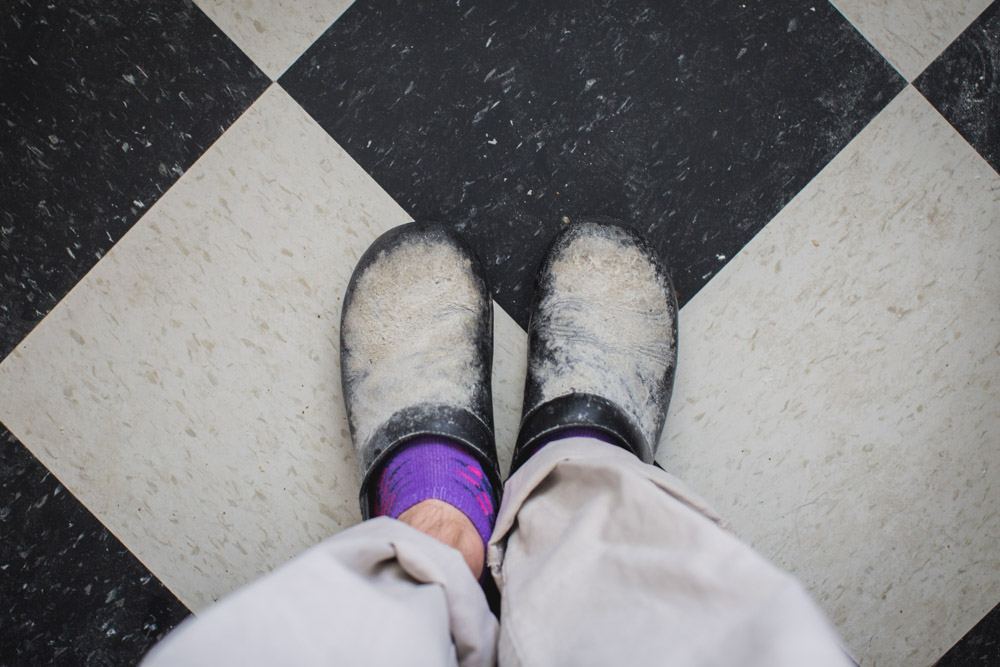
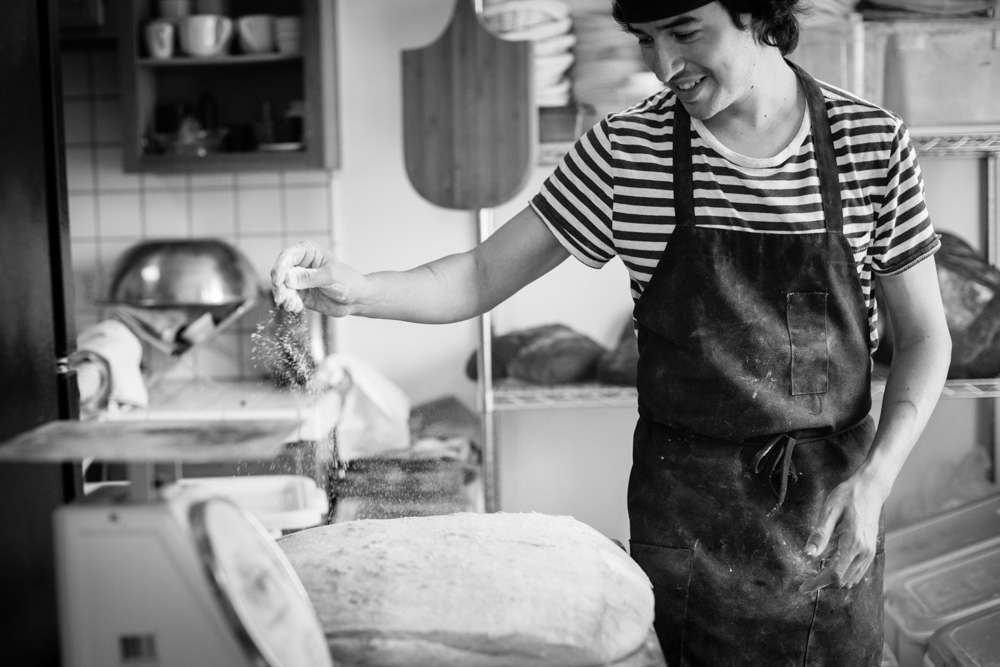





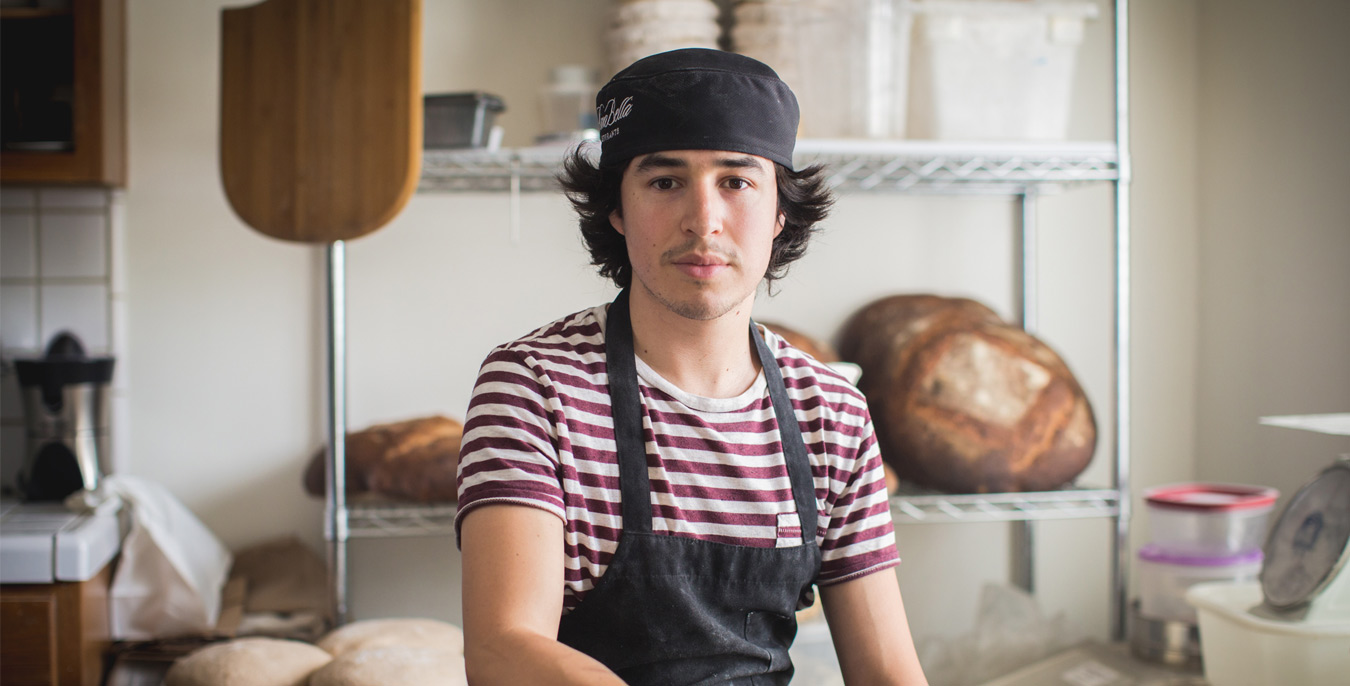

Our comments section is for members only.
Join today to gain exclusive access.